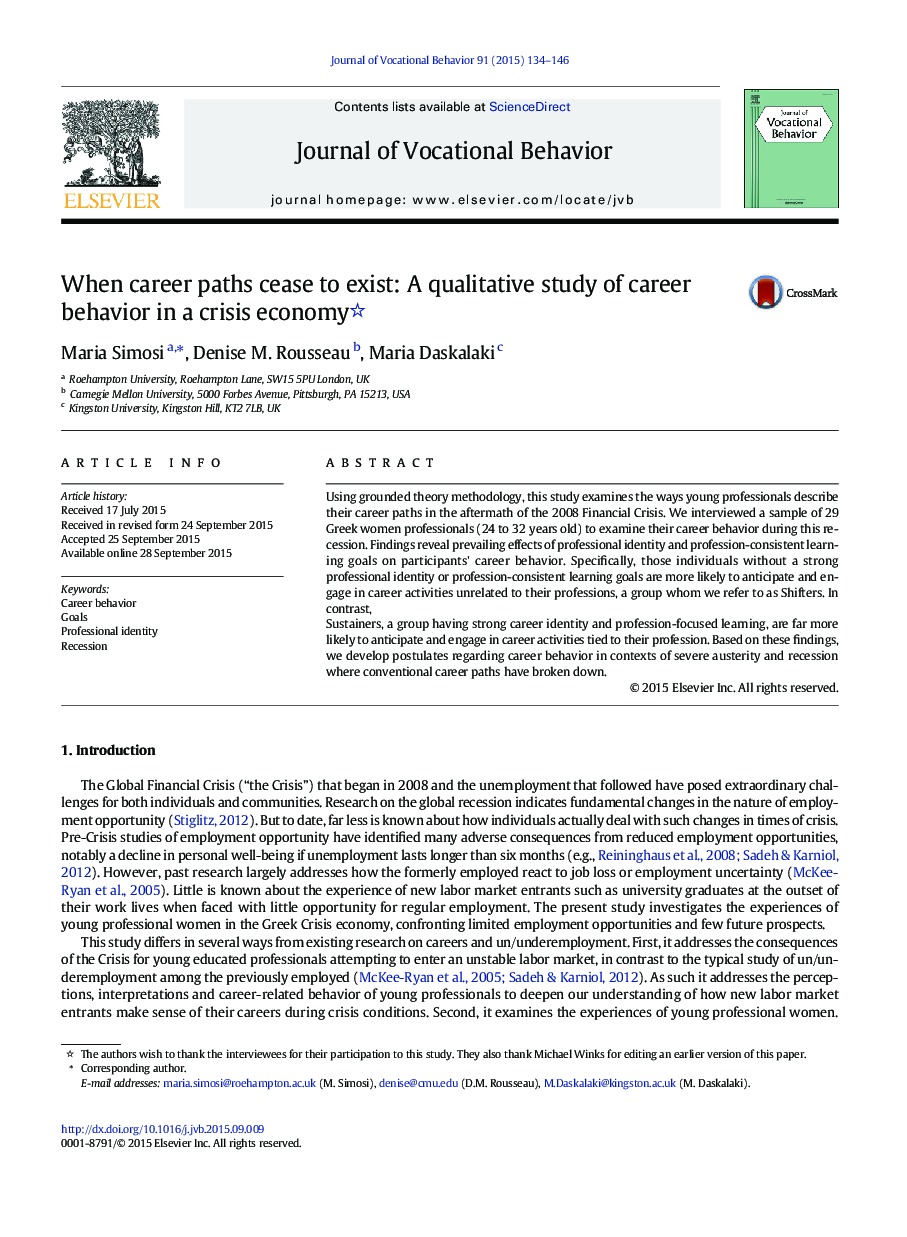| Article ID | Journal | Published Year | Pages | File Type |
|---|---|---|---|---|
| 886744 | Journal of Vocational Behavior | 2015 | 13 Pages |
•Career strategies during economic crises differ depending on the strength of professional identity.•Professional identity and learning goals can work together to inform career behavior.•We develop postulates for young professionals' career behavior in crisis economies.
Using grounded theory methodology, this study examines the ways young professionals describe their career paths in the aftermath of the 2008 Financial Crisis. We interviewed a sample of 29 Greek women professionals (24 to 32 years old) to examine their career behavior during this recession. Findings reveal prevailing effects of professional identity and profession-consistent learning goals on participants' career behavior. Specifically, those individuals without a strong professional identity or profession-consistent learning goals are more likely to anticipate and engage in career activities unrelated to their professions, a group whom we refer to as Shifters. In contrast,Sustainers, a group having strong career identity and profession-focused learning, are far more likely to anticipate and engage in career activities tied to their profession. Based on these findings, we develop postulates regarding career behavior in contexts of severe austerity and recession where conventional career paths have broken down.
